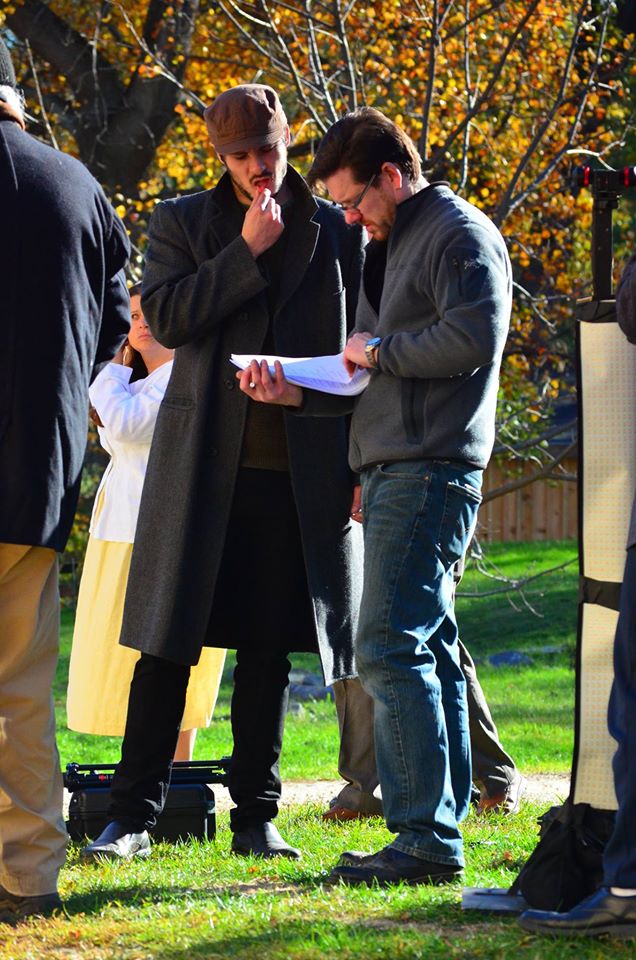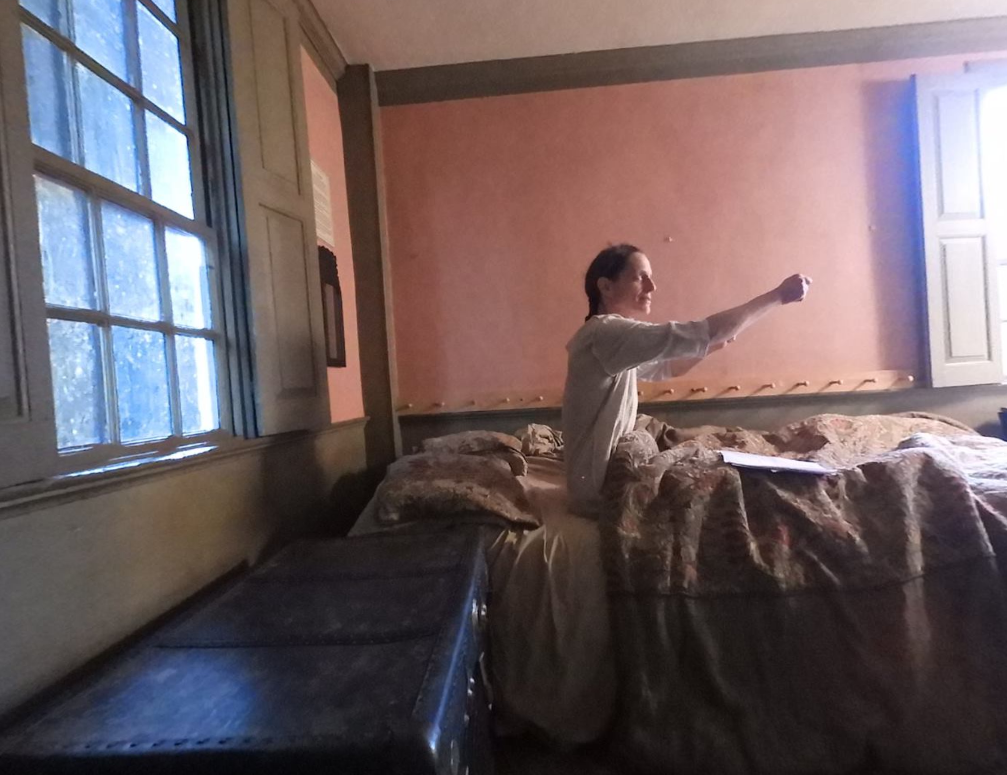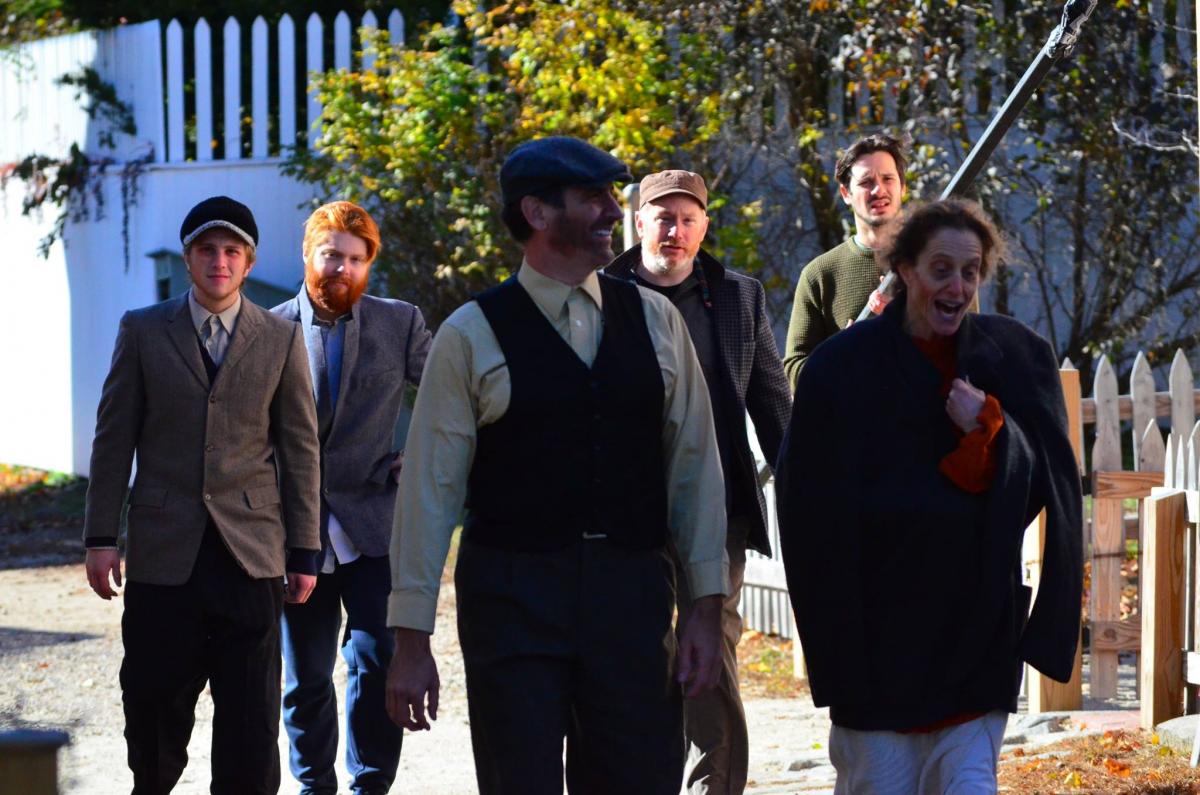Virtual Reality Filmmaking Coming to Emerson’s Boston Campus

Next semester, Associate Professor of Visual and Media Arts Daniel Gaucher will be teaching his film students to forget about what they’ve learned so far.
In the spring, he will begin offering a course in immersive filmmaking—something he’s been working on over the last few years and has taught as directed study in the past. It will be the first formal “virtual reality” class offered on Emerson’s Boston campus (Emerson Los Angeles launched one in Spring 2016).
“It’s quite difficult as a medium, because it breaks the rules,” Gaucher said.
As someone whose professional background is in editing, Gaucher said he has had to be fully aware of all the formulas and rules that make good traditional filmmaking. For instance, the editor will use a particular sequence of shots called “formula editing” (wide shot, medium shot, over-the-shoulder, close up) to build intimacy for an audience, he said.
With immersive filmmaking and virtual reality, “we have to think of ways to get that same psychological reaction now without so many edits, and without being able to manipulate the camera [in the same way],” he said.
(Some definitions: What Gaucher is teaching is more accurately called “immersive filmmaking,” where the viewer is positioned in the midst of the action but cannot determine what happens in the film. “Virtual reality” technically refers to experiences in which the viewer has agency. “Augmented reality” is a medium in which virtual reality, or VR, elements are superimposed over actual people/places/things. For the purposes of this article, VR is used as a catchall term.)
Gaucher compared where filmmakers are today with virtual reality with where the 19th-century founding fathers of filmmaking were when they would just stick a camera on the street and record what passed in front of them.
“We’re kind of back at the Lumiere Brothers stage,” he said.
That might be a bit of an exaggeration. Gaucher, along with Alexandre Echeverri '15, former student Brendan Feeney and some current students, is testing the narrative waters of immersive filmmaking with Maren’s Rock, his retelling of the 1873 Smuttynose Island axe murders.
The narrative short being filmed in Portsmouth, New Hampshire, dramatizes the double murder of two Norwegian immigrant women, witnessed by another woman who hid all night in the rocks on the island’s edge. A German fisherman was convicted and hanged for the murders.

Gaucher said one thing VR can give an audience that traditional film doesn’t is an acute sense of vulnerability.
“There’s no place to escape,” he said. “If you’re watching a movie and something is intense or unpleasant, or for that matter, boring, you can avert your attention away from the frame—when you’re immersed in a story, there’s no place to go.”
Zaji Zabalerio ’18 is working with Gaucher on Maren’s Rock and is planning to take his immersive filmmaking course in the spring. In addition, he and fellow students Myles Badger '17 and Grayson Kohs '17 run a VR student organization called Stereoscopic that's in the process of getting Student Government Association accreditation.
He said that sense of “being there” is part of what attracted him to the medium and where so much of immersive filmmaking gets its power, particularly with stories based on real (and/or gory) events.
“It really brings the audience to not just a front-row seat, but almost as a witness to the story, and I think that’s a really powerful tool to have because in the media today; everyone wants to be a witness,” said Zabalerio.

Emerson Moving Ahead
To get the immersive effect, Emerson uses rigs consisting of seven GoPro cameras inside a plastic globe that holds the cameras at different angles, Gaucher said. After a film is shot, it’s stitched together with software to make a single movie. He said he also has his eye on equipment that Nikon just came out with, consisting of two back-to-back cameras with fisheye lenses, which are much easier to film with.
There has been a lot of investment in VR technology industry-wide, Gaucher said, but the challenge has been coming up with good content (and then monetizing it). That’s where Emerson has an opportunity to shine, he said.
“Emerson is a content creation school; that’s what we do for media,” he said. “We teach people how to be good narrative storytellers.”
John Craig Freeman, a professor in the VMA Department and a visual artist who works in virtual and augmented reality, said that VR and immersive filmmaking have shown that the way we tell stories in the future is “completely up for grabs.” That should affect the way students think about their art and the way faculty teach their courses.
“You want [students] thinking in terms of invention itself,” Freeman said. “The minute they realize they kind of hold the key to inventing the forms they’ll be practicing, that empowers them.”
Virtual reality as an artistic tool has been around for nearly 15 years, and it has shown a way forward, narratively, in which stories happen across space, rather than over time, Freeman said, and institutions are eager to try to get out in front of the evolution.
While institutions such as MIT probably have the edge in terms of investment and technology, Emerson, as a center of innovative storytelling, is “well positioned” to move the art forward.
“It’s exciting what Dan’s doing, and I think students are really ready to take this on,” Freeman said. “Emerson represents an interesting kind of confluence at this time.”
Categories